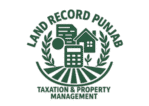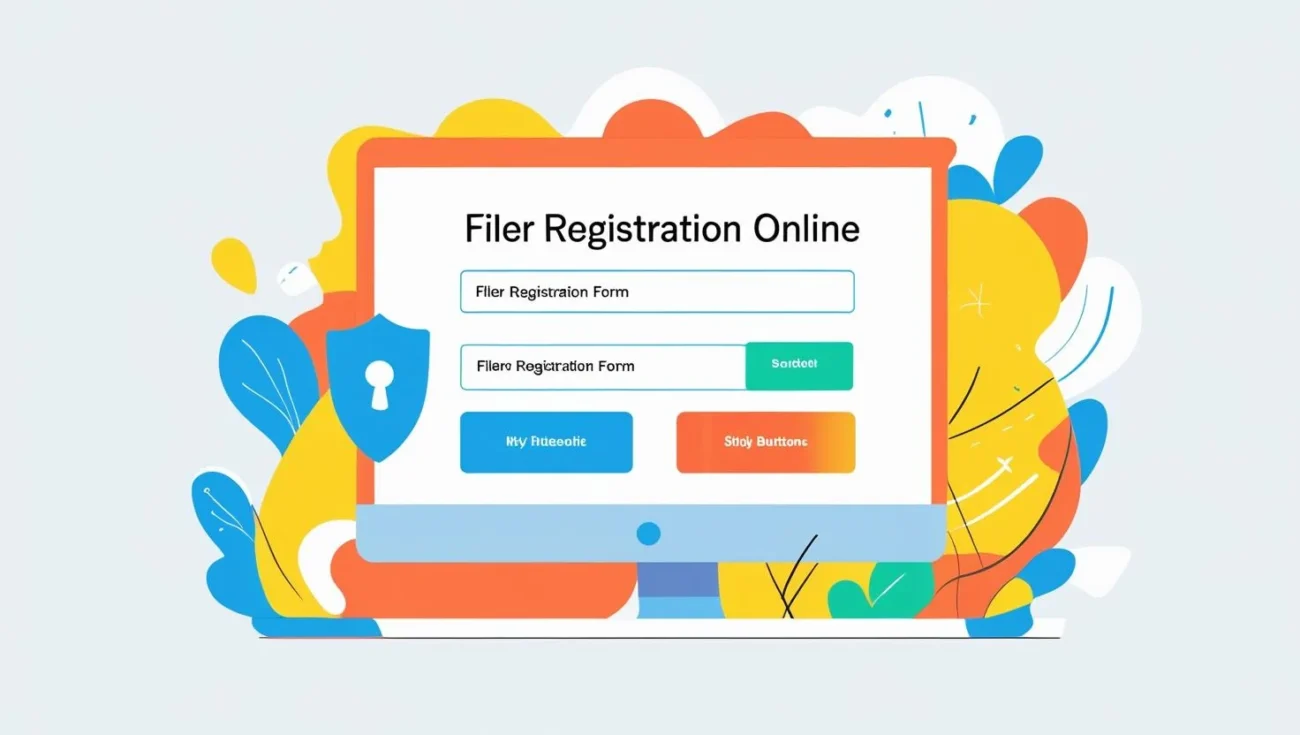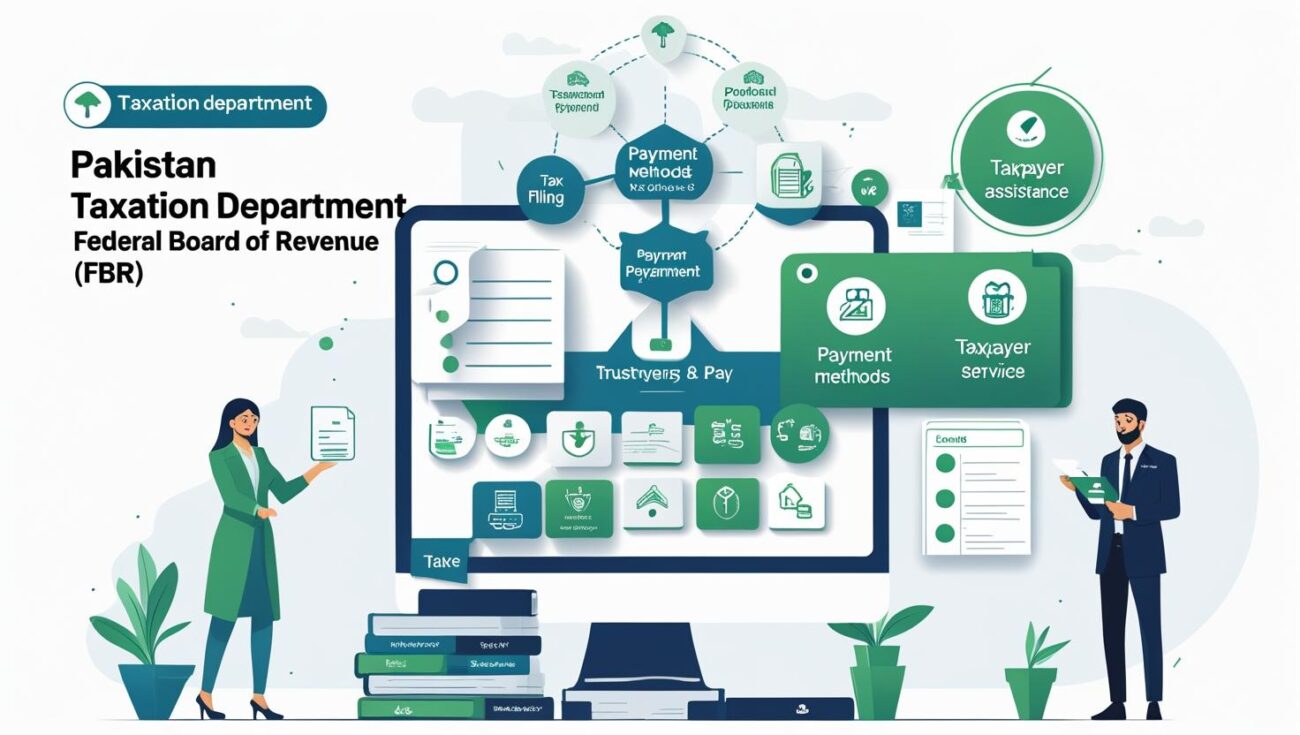The taxation system in Pakistan serves as a primary mechanism for mobilizing financial resources necessary to sustain public infrastructure, service delivery, and administrative operations. Out of the various types of taxes, excise tax is a very good source of revenue both at the federal and provincial level. This tax is charged on certain goods, services, or actions and is usually paid when the goods are made or sold. Provinces have different administration, rate structures and mechanisms, with one of the more localized and complex forms of this system being excise tax Sindh.
What is the Excise Tax?
Excise tax is a kind of tax that’s added when certain products are made, sold, or used. As opposed to the general sales tax that charges a wide variety of goods, excise duties are charged on a limited number of goods including tobacco, alcohol, vehicles, real estate purchases and luxury goods. The justification of such a tax can comprise revenue collection, deterrence of the bad use, and control of the expensive transactions.
In Pakistan, excise tax is governed at the federal level (as a part of the Federal Excise Act, 2005) and by individual provinces excise and taxation units. Some of these departments include collection of different duties such as property excise tax, car excise tax and professional taxes.
Excise Tax Administration in Sindh
The structure of excise tax Sindh is managed by Sindh excise, Taxation and Narcotics Control Department. It operates in matters of excise laws and collection of taxes on motor vehicle, property and professional activities in the province. The department is also providing control over narcotics and acts as a regulator in bringing down the illicit trade.
The incidents of excise tax Sindh entail taxation of entertainment, tobacco products, certificates, and alcoholic drinks. More so, it has the powers to collect vehicle registration and token taxes thus making duty on car excise among the most commonly addressed among the people of Sindh.
Types of Excise Tax in Pakistan
Car Excise Tax
Car excise tax is one of the most common taxes that ordinary people deal with. It is charged when a new vehicle is registered in Pakistan and usually needs to be renewed every year. How much you pay depends on the engine size, the kind of vehicle, and whether you own it personally. In Sindh, the tax is higher for imported and luxury cars compared to others.
Excise tax on cars in Sindh can be paid by visiting specific branches or aches or through the online system that is provided by the provincial department. Government has been digitizing to make it easy to pay excise tax to the government by the vehicle owners.
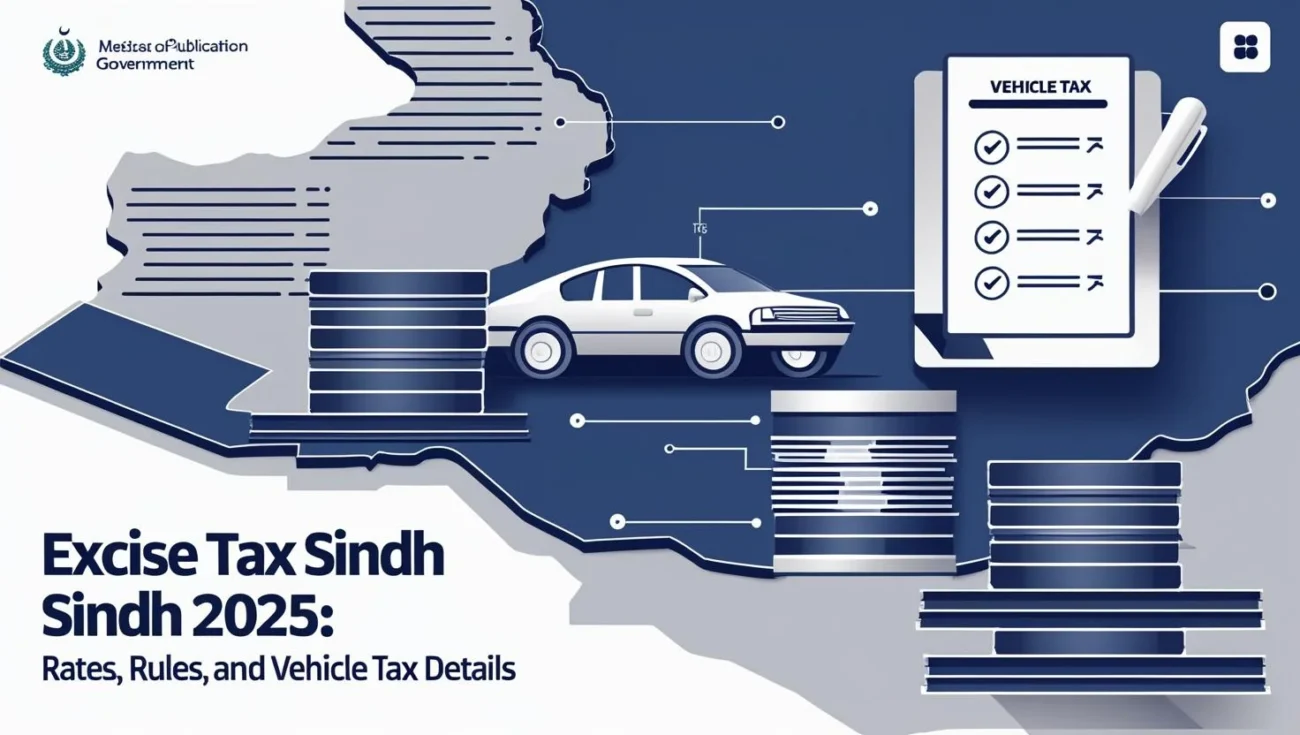
Property Excise Tax
The other important sources of revenue include the property excise tax, which is relevant especially in the more urban areas such as Karachi and Hyderabad. It is placed on residential, commercial and industrial premises depending on matters like location, area covered and usage. The liability for this tax is determined on an annual basis and is administered by the provincial authorities.In the excise tax Sindh, the system of property valuation and computerization of tax where one has to pay tax has been questioned as very out-dated. There are reforms in the process that require property records to be digitized in addition to incorporating geo-tagging system to enhance compliance and transparency.
Tax on Goods and Entertainment
Taxes like excise duty also apply to the sale or production of products such as alcohol, tobacco, cement and steel and to services such as entertainment and adverts. These responsibilities are either fixed or percentage-wise depending on the nature of the item or service.
As an instance, alcohol manufacturing units face a heavy tax imposed upon them under the excise tax Sindh, and entertainment taxes are imposed on tickets of movies and performances. These taxes don’t bring in a lot of money overall, but they’re used to help guide behavior and match the goals people have for government policy.
Excise Tax Payment Systems
In its effort to increase compliance through the ease of payment of the excise taxes, government has indicated that it is important to simplify the process of paying taxes. In Sindh, the payers are getting an opportunity to pay the dues, using online portals connected to NADRA, dedicated bank facilities as well as mobile applications. Such convenience of access benefits especially car and property owners who used to wait in long lineups and would work inefficiently handled by people.
Administatively, digital means of payment of excise taxes not only allow reducing the administrative load, but also contributes to keeping an unequivocal audit trail. With such systems developing, it is anticipated to have more similar taxation items added to digital infrastructure within the excise tax Sindh category.
Issues in Excise Tax Collection
Although digitization and reforms are increasing, there are still a number of challenges in the efficient imposition of excise tax in Pakistan. These are the low levels of public awareness, tax evasion, valuation of properties as of old, and poor collaboration among the agencies. The situation is worsened with the revenue collection in the corrupt and inefficient provinces such as Sindh.
More precisely, lack of registered properties, inaccuracy of databases containing information of vehicles, as well as inability to enforce compliance with the excise tax Sindh, are the challenges that hinder the effectiveness of the excise tax. Due to this, the province seems to perform poorly on revenue collection yet there is more potential.
Reforms and Future Prospects
With the realization of such problems, federal and provincial governments are reforming. These are improvement in the database integration between FBR and the provincial departments, utilization of GIS mapping in the property excise tax and enhancement in the web-based excise tax payment systems. Sindh especially is trying to simplify those processes of collection, updating old laws and automatizing the process.
It seems that excise tax Sindh is becoming more policy-based and digital. The government is supposed to increase the scope of taxation, minimize the exemptions and make compliance stringent. Such measures, when executed accordingly, will see an enormous spiking in the revenue without having to hike taxes.
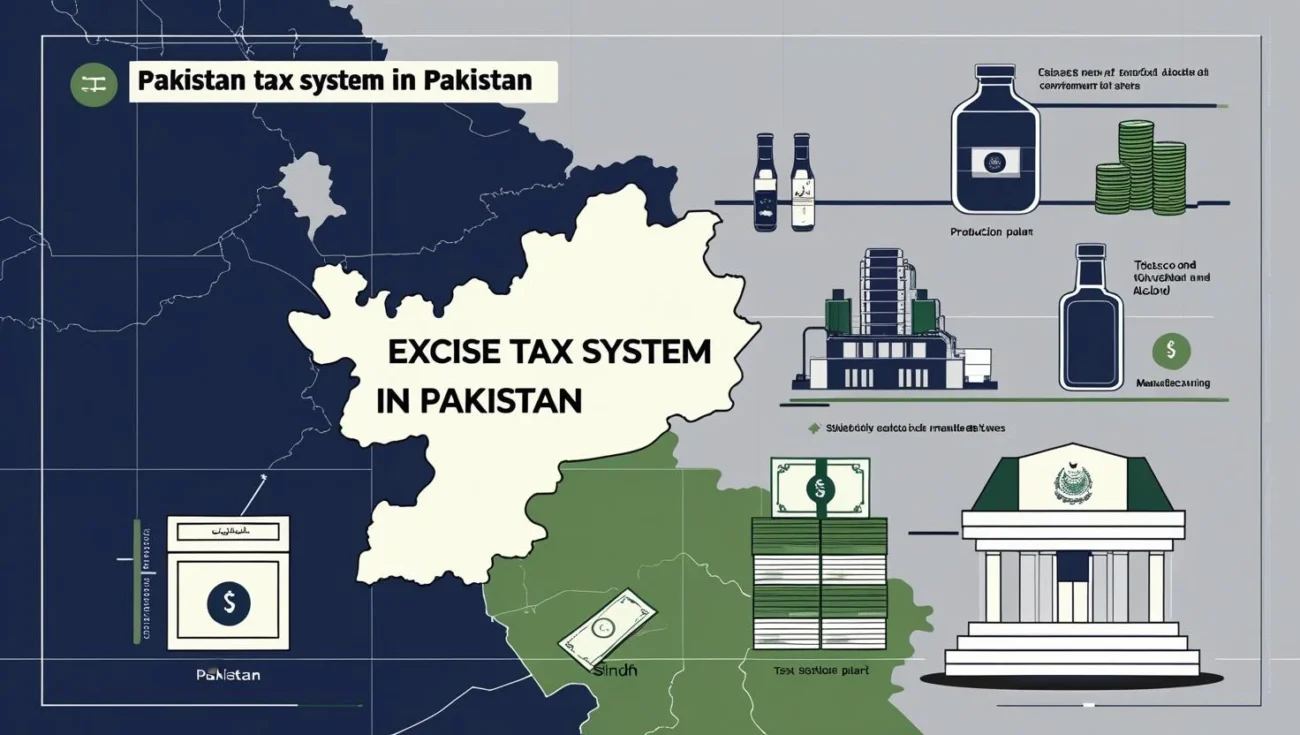
Public Awareness and Compliance
It is also important to get people to be aware of the significance of excise tax. Lack of awareness by many citizens is also a major reason since many citizens feel they are not bound by excise tax on property, and excise tax on cars. Voluntary compliance can be enhanced by educational campaigns, open systems, and customer receptive support.
In Sindh, there have been attempts to popularize excise tax Sindh changes by notifying the public on SMS, advertising, and visiting communities. Nonetheless, stronger and stable initiatives are required to find the creation of tax responsibility culture.
Conclusion
Pakistan excise tax system, encompassing the provincial version of excise tax, excise tax Sindh, belongs to the key components of the country fiscal system. Whether it is car excise tax or property excise tax, this type of tax reaches into the routine lives of the citizens as it provides much needed funds to government activities.
Nevertheless, with the current attempts of reforming and digitalizing them, it is possible that the way these taxes are collected and maintained can be changed. The system can be made more efficient and more equitable by simplifying the process of maintenance of excise tax, improving the transparency of the system and educating the people. The increased and more responsible excise taxation system will eventually help all of the population since it will contribute in the improvement of infrastructure, services, and governance of all.
